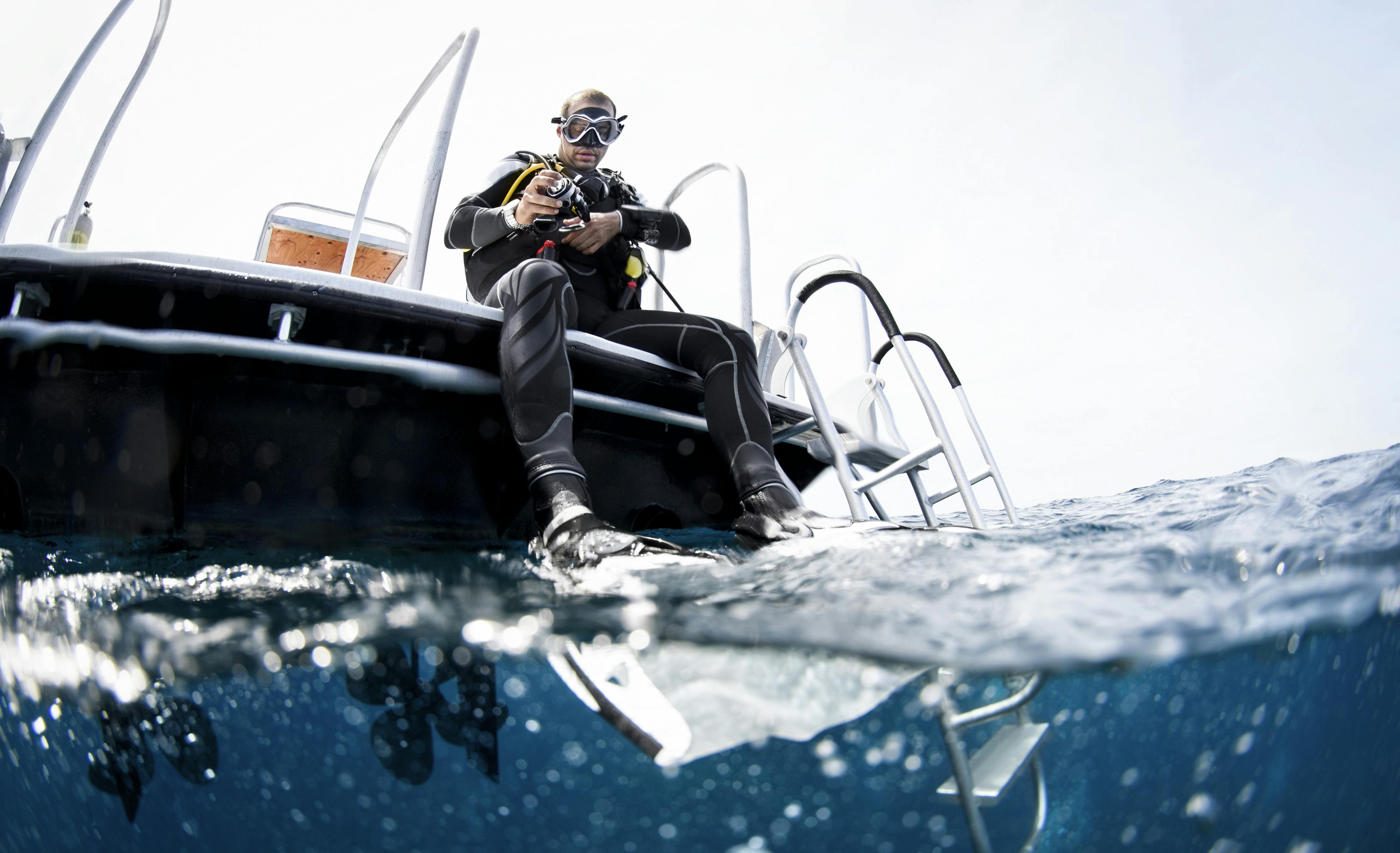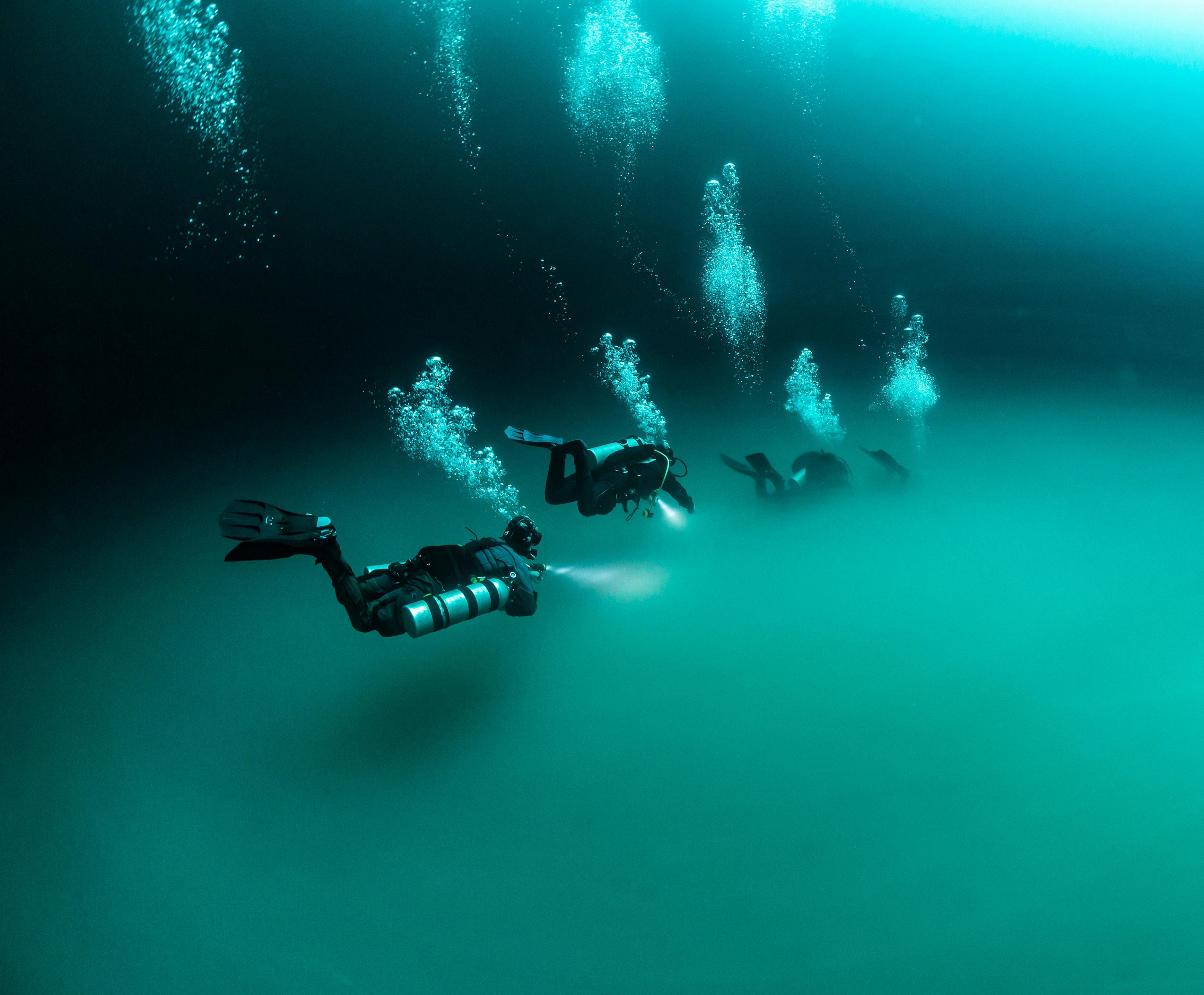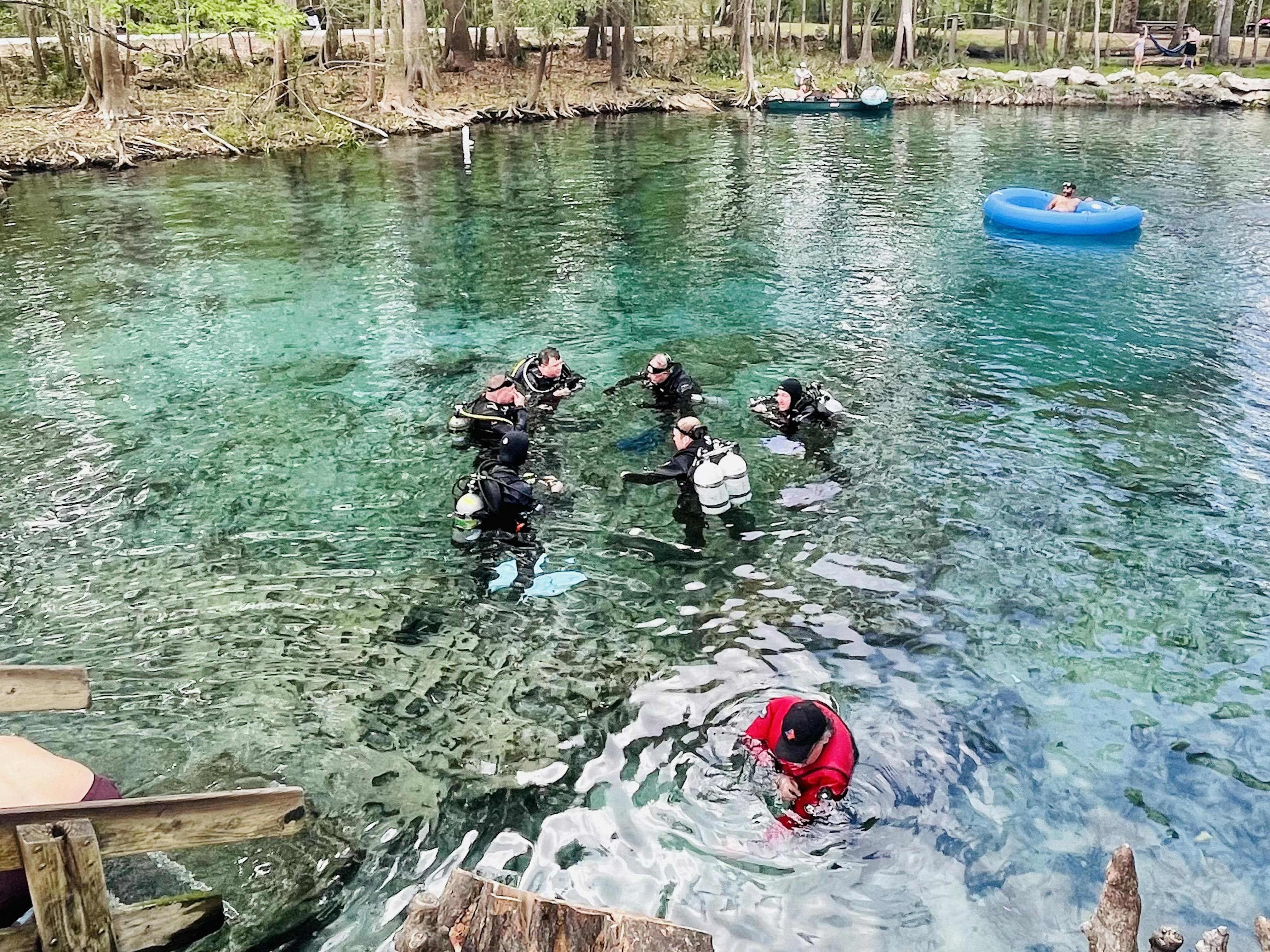Freshwater vs. Saltwater Diving

When you think of “scuba diving,” the ocean is likely the first thing that comes to mind. However, freshwater diving is often overlooked, even though it can deliver just as much excitement and wonder—if not more. In fact, there are countless freshwater locations to explore, and Florida boasts more springs than any other state in the nation.
Saltwater and freshwater diving are two sides of the same coin, offering similar yet uniquely different underwater experiences. While snorkeling is accessible to anyone, whether it's above a vibrant coral reef or in a crystal-clear spring, scuba diving allows for a deeper and more immersive exploration of these underwater worlds. Let’s dive into the similarities and differences between saltwater and freshwater scuba diving.
Pre-Dive
No matter where you choose to dive, having the proper equipment, training, and certifications is essential. Contrary to popular belief, freshwater conditions can vary widely in visibility, temperature, and currents depending on the location—just like the ocean. Whether you’re diving in crystal-clear waters or murky depths, always prioritize safety by following protocols, checking your gear, and performing pre-dive checks with your dive buddy.
If you’re diving in freshwater, keep in mind that you may need to adjust your weights. Since saltwater is denser than freshwater, your buoyancy will change between the two. In freshwater, you’ll experience less buoyancy, making it easier to descend. As a result, you’ll likely require less weight compared to diving in saltwater.
Mid-Dive

Diving in freshwater and saltwater opens the door to two entirely different ecosystems, each with its own unique wonders. While freshwater diving may lack the vibrant coral reefs found in the ocean, it makes up for it with stunning rock formations and geological features. Both offer unforgettable sights, showcasing the diversity of underwater landscapes.

Certain freshwater dive spots can be just as lively as coral reefs, teeming with aquatic wildlife. In these waters, you might encounter species like blue tilapia, snook, and gars. If you're lucky and in the right place at the right time, you could even catch a glimpse of a river otter or a graceful manatee swimming by.
For manatee enthusiasts, Blue Spring State Park is a must-visit destination. Located slightly north of Orlando, this park serves as a winter haven for Florida's beloved manatees. The park's 72-degree spring water is enjoyable year-round, and its crystal-clear waters live up to its name, offering stunning visibility that lets you admire the fish and sandy bottom even from the surface.
Freshwater diving locations range from lakes and rivers to abandoned quarries, but springs are often a favorite among divers. Known for their clear waters, diverse inhabitants, and opportunities for cavern diving, springs offer a unique experience. Take, for example, the Blue Grotto Dive Resort in Williston, Florida. It’s home to Florida’s largest accessible underwater cavern, making it a top destination for divers seeking adventure and beauty.
Cavern and cave diving offer an adrenaline-pumping adventure for some, while others may find the thought intimidating. Regardless of how thrilling it seems, these environments demand respect and caution. Only attempt cave or cavern diving if you are properly trained, certified, and accompanied by a skilled dive buddy. Safety is non-negotiable, as these dives require specialized knowledge, equipment, and preparation.
So, what fascinating sights might you encounter while cave diving? One particularly mesmerizing feature is a halocline, commonly found in limestone caves. This natural phenomenon occurs when freshwater and saltwater meet, with the denser saltwater sitting below the lighter freshwater. The separation between the two creates an optical illusion of a distinct, shimmering layer of water, offering divers a surreal and otherworldly experience.
Post-Dive
Proper gear maintenance is crucial, whether you’re diving in saltwater or freshwater. After a saltwater dive, it’s recommended to rinse your equipment with freshwater to remove salt, which can be highly corrosive. However, freshwater diving also requires diligent post-dive care. While freshwater lacks the corrosive effects of salt, it comes with its own challenges, such as sand, debris, and bacteria that can cling to your gear. Thoroughly rinsing your equipment removes these contaminants, prevents potential damage, and ensures optimal performance for future dives. No matter where you dive, rinsing your gear is essential to maintaining its integrity and extending its lifespan.

More Florida Freshwater Gems
Ginnie Springs – Renowned for its crystal-clear waters, Ginnie Springs offers stunning views of limestone formations and an intricate system of submerged caves. The area is home to a variety of aquatic life, including turtles and fish. With its consistent water temperature and excellent visibility, it provides year-round diving comfort. Its accessibility and onsite amenities make it an ideal destination for divers of all experience levels.

Devil’s Den – This prehistoric underground spring boasts a submerged cavern adorned with striking rock formations. Divers can explore its hidden passageways and witness the ancient beauty preserved within its depths. The site is teeming with aquatic life, making it a must-visit for certified divers seeking a unique and enchanting experience.
Rainbow River – This unspoiled spring-fed river is a treasure trove of life, featuring turtles, fish, and even the occasional manatee. The clear, winding channels and vibrant underwater vegetation create a paradise for nature lovers and underwater photographers. Its gentle current and scenic beauty make it a serene and memorable dive.
Ichetucknee Springs (Blue Hole/Jug Hole) – Found within Ichetucknee Springs State Park, the Blue Hole is a premier spot for cavern-certified divers. Known for its deep sapphire waters and fascinating rock formations, it offers a more advanced and technical diving experience. This site’s unique features make it a favorite for those seeking adventure and a glimpse into Florida’s geological history.
Weeki Wachee Springs – Known for its iconic mermaid shows, Weeki Wachee Springs also offers a stunning underwater experience. The springs boast crystal-clear waters, lush underwater vegetation, and a thriving aquatic ecosystem. During the winter months, divers may even spot manatees as they seek the warm waters of the spring. Whether you're drawn by the mermaids or the natural beauty beneath the surface, Weeki Wachee is a unique and memorable destination for divers.
Beyond these renowned dive sites, Florida is brimming with countless other freshwater gems waiting to be explored. Don’t confine your diving adventures to the ocean—dive into crystal-clear springs, spring-fed lakes, winding rivers, or submerged caves to uncover an entirely different world. Like saltwater, freshwater diving offers endless opportunities to experience nature’s beauty in unique and exciting ways. Happy diving!
FAQs
What is freshwater diving?
Freshwater diving involves exploring underwater environments such as lakes, rivers, springs, and quarries, as opposed to diving in saltwater bodies like oceans.
How does freshwater diving differ from saltwater diving?
Freshwater diving may involve differences in buoyancy due to differences in water density and may require adjustments in equipment and dive planning. In most cases, diving both requires similar characteristics.
What are common freshwater dive sites?
Popular freshwater dive sites include the Rainbow River, Ginnie Springs, and Blue Spring.
Can I encounter marine life while freshwater diving?
Yes, freshwater environments support diverse aquatic life, including fish, turtles, manatees, otters, and various invertebrates.
Is visibility good in freshwater diving?
Visibility when freshwater diving varies depending on location, weather conditions, and water quality. Some sites offer excellent visibility, while others may have reduced visibility due to sediment or algae.
Do I need special certification for freshwater diving?
While basic scuba diving certification is sufficient for many freshwater dive sites, specialized training may be required for certain environments, such as cave diving.
Can I dive in freshwater if I have only dived in saltwater before?
Yes, many divers transition from saltwater to freshwater diving with proper training and guidance.





